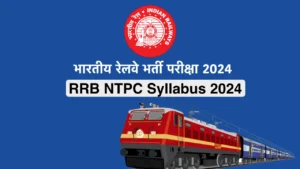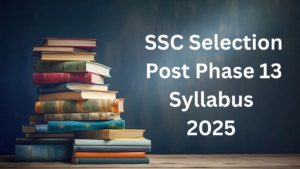UPSC Syllabus 2024: संघ लोक सेवा आयोग सरकारी क्षेत्र में विभिन्न ग्रेड-A पदों के लिए उम्मीदवारों को शॉर्टलिस्ट करने के लिए हर साल UPSC परीक्षा आयोजित करता है। यूपीएससी सिविल सेवा परीक्षा देश की सबसे कठिन और प्रतिष्ठित परीक्षाओं में से एक है। आगामी UPSC भर्ती में रुचि रखने वाले उम्मीदवारों को UPSC सिलेबस 2024 के बारे में पता होना चाहिए। UPSC सिलेबस को समझने से किसी व्यक्ति को अपनी तैयारी यात्रा की योजना बनाने और रणनीति बनाने में मदद मिलती है जिससे परीक्षा में सफलता की संभावना अधिकतम हो जाती है। प्रारंभिक और मुख्य परीक्षा दोनों के लिए विस्तृत UPSC सिलेबस और परीक्षा पैटर्न की जांच करने के लिए नीचे पढ़ें।
UPSC 2024 परीक्षा तिथि
संघ लोक सेवा आयोग ने 14 फरवरी, 2024 को UPSC सिविल सेवा परीक्षा (CSE) के लिए अधिसूचना जारी कर दी है। आधिकारिक अधिसूचना जारी होने के साथ, UPSC 2024 के लिए पंजीकरण प्रक्रिया भी शुरू हो गई थी। IAS परीक्षा के लिए पात्र उम्मीदवारों ने upsc.gov.in पर 6 मार्च, 2024 तक आवेदन पत्र भरे हैं। आयोग द्वारा वर्ष 2024 के लिए कुल 1056 UPSC रिक्तियां जारी की गई हैं।
| UPSC 2024 परीक्षा | |
| पर्टिकुलर्स | विवरण |
| आवेदन शुरू होने की तिथि | 14 फरवरी, 2024 |
| आवेदन करने की अंतिम तिथि | 6 मार्च, 2024 |
| एडमिट कार्ड | मई 2024 |
| प्रारंभिक परीक्षा | 16 जून, 2024 |
| प्रारंभिक परीक्षा का परिणाम | जून/जुलाई 2024 |
| मुख्य परीक्षा | 20 सितंबर, 2024 |
UPSC सिलेबस 2024
फरवरी 2024 में आधिकारिक UPSC अधिसूचना के साथ इन परीक्षाओं के लिए आधिकारिक सिलेबस जारी किया गया था। प्रारंभिक परीक्षा स्थगित होने के साथ, उम्मीदवारों के पास अब पूरे सिलेबस को व्यापक रूप से कवर करने के लिए अतिरिक्त 15 दिन हैं। सुविधा के लिए, हमने UPSC सिलेबस को दो भागों: प्रीलिम्स और मेन्स में विभाजित किया है। प्रीलिम्स के लिए UPSC सिलेबस में दो अनिवार्य पेपर शामिल हैं: सामान्य अध्ययन पेपर- I और सामान्य अध्ययन पेपर- II (जिसे CSAT या सिविल सर्विसेज एप्टीट्यूड टेस्ट के रूप में भी जाना जाता है)। ये पेपर इतिहास, भूगोल, अर्थशास्त्र, राजनीति, पर्यावरण, विज्ञान और समसामयिक मामलों सहित विषयों की एक विस्तृत श्रृंखला को कवर करते हैं। UPSC मुख्य परीक्षा का सिलेबस अधिक विशिष्ट है और इसमें नौ पेपर शामिल हैं, जिनमें एक निबंध पेपर, चार सामान्य अध्ययन पेपर, दो वैकल्पिक विषय पेपर और दो भाषा पेपर (दोनों प्रकृति में योग्यता) शामिल हैं।
UPSC चयन प्रक्रिया 2024
संघ लोक सेवा आयोग की नियुक्ति निम्नलिखित चयन प्रक्रिया के आधार पर की जाएगी।
- प्रारंभिक चरण – सामान्य अध्ययन और CSAT
- मुख्य चरण – 9 थ्योरी पेपर (GS I-IV, भाषा पेपर, निबंध और वैकल्पिक)
- व्यक्तित्व परीक्षण – साक्षात्कार
चयन प्रक्रिया के संबंध में विवरण इस प्रकार है:
- प्रारंभिक परीक्षाः यह क्वालीफाइंग प्रकृति का है और उम्मीदवारों की सामान्य जागरूकता और मानसिक योग्यता का परीक्षण करता है। यह एक ही दिन में 2 शिफ्टों में आयोजित किया जाता है। पहला पेपर GS का होता है और दूसरे को CSAT कहा जाता है।
- मुख्य परीक्षाः यह 5 दिन चलने वाली परीक्षा है जिसमें 9 पेपर होंगे, सभी सब्जेक्टिव होंगे। यह चयन प्रक्रिया का बहुत लंबा और कठिन हिस्सा है। इस चरण में उम्मीदवारों द्वारा प्राप्त अंक मेरिट सूची निर्धारित करने में सबसे बड़ा कारक हैं।
- साक्षात्कारः इसे व्यक्तित्व परीक्षण के रूप में भी जाना जाता है जो चयन प्रक्रिया का सबसे चर्चित हिस्सा है। यह चयन यात्रा का अंतिम चरण है और बुनियादी सामान्य ज्ञान से लेकर दिमाग की उपस्थिति तक कई स्तरों पर उम्मीदवारों का परीक्षण करता है।
UPSC परीक्षा 2024
विस्तृत UPSC प्रारंभिक और मुख्य सिलेबस नीचे सारणीबद्ध हैं।
| UPSC Syllabus 2024 | ||
| विवरण | प्रारंभिक परीक्षा | मुख्य परीक्षा |
| पेपरों की संख्या | 2 | 9 |
| प्रश्नों के प्रकार | बहुविकल्पीय | वर्णात्मक |
| परीक्षा की अवधि | प्रत्येक 2 घंटे | प्रत्येक 3 घंटे |
| कुल मार्क्स | 400 | 1750 |
| परीक्षा का माध्यम | अंग्रेज़ी और हिंदी | अंग्रेजी और हिंदी (भाषा का पेपर छोड़कर) |
| नेगेटिव मार्किंग | ⅓ अंक | कोई नेगेटिव मार्किंग नहीं होती |
| अंक मेरिट में जोड़े जाएँगे | नहीं | हाँ |
UPSC प्रारंभिक परीक्षा पैटर्न 2024
नीचे सारणीबद्ध UPSC प्रारंभिक परीक्षा पैटर्न 2024 देखें। परीक्षा पैटर्न को ठीक से समझने के लिए उम्मीदवारों को कुछ महत्वपूर्ण बिंदुओं की जांच करनी चाहिए।
- प्रत्येक गलत उत्तर के लिए कुल अंक का 1/3 अंक काटा जाएगा।
- सामान्य अध्ययन (पेपर I) में, प्रत्येक प्रश्न 2 अंकों का है और 0.66 अंकों की नकारात्मक अंकन है।
- CSAT (पेपर- II) में, प्रत्येक प्रश्न 2.5 अंक का होता है और प्रत्येक गलत उत्तर के लिए 0.833 अंक की नकारात्मक अंकन होती है।
- सिविल सेवा (प्रारंभिक) परीक्षा का पेपर II एक क्वालीफाइंग पेपर होगा जिसमें न्यूनतम योग्यता अंक 33% निर्धारित होंगे।
| Paper | Subjects | Marks | No. of Questions | Duration |
|---|---|---|---|---|
| I | General Studies (GS) | 200 | 100 | 2 hours |
| II | Civil Services Aptitude Test (CSAT) | 200 | 80 | 2 hours |
UPSC मुख्य परीक्षा पैटर्न 2024
UPSC प्रारंभिक परीक्षा में सफल होने वाले उम्मीदवार UPSC मुख्य परीक्षा के लिए पात्र होंगे। प्रारंभिक परीक्षा के अंक अंतिम परिणाम (मेरिट सूची) में शामिल नहीं किए जाएंगे। UPSC मुख्य परीक्षा में 9 पेपर होते हैं। भाषा के प्रश्नपत्र क्वालीफाइंग अंकों के होते हैं और बाकी प्रश्नपत्रों में अंक प्राप्त किये जायेंगे। मुख्य परीक्षा उम्मीदवार के शैक्षणिक ज्ञान और समयबद्ध तरीके से प्रश्न की आवश्यकताओं के अनुसार समझ प्रस्तुत करने की क्षमता का परीक्षण करने के लिए आयोजित की जाती है।
- उम्मीदवारों को दोनों क्वालीफाइंग पेपरों में 25% यानी प्रत्येक में 75 अंक प्राप्त करने की आवश्यकता है।
- मुख्य परीक्षा में दो क्वालीफाइंग पेपर होते हैं, अर्थात् “पेपर A” और “पेपर B” प्रत्येक 300 अंकों का होता है।
- दो क्वालीफाइंग पेपर “आठवीं अनुसूची से कोई भी भारतीय भाषा” और “अंग्रेजी भाषा पेपर” हैं।
अन्य सभी सात पेपर प्रकृति में स्कोरिंग हैं और उनके अंक अंतिम मेरिट सूची में शामिल किए जाएंगे। - उम्मीदवारों को पेपर VI और पेपर VII के लिए अपने वैकल्पिक विषय के रूप में तालिका से किसी एक विषय का चयन करना होगा।
| UPSC Mains Exam Pattern 2024 | ||
| Qualifying Papers | Marks | |
| Paper-A | One of the Indian Language to be selected by the candidate from the Languages included in the Eighth Schedule to the Constitution |
300 |
| Paper-B | English | 300 |
| Papers Counted for Merit | ||
| Paper-I | Essay | 250 |
| Paper-II | General Studies-I (Indian Heritage and Culture, History and Geography of the World and Society) | 250 |
| Paper-III | General Studies-II (Governance, Constitution, Polity, Social Justice, and International relations) | 250 |
| Paper-IV | Genera Studies-III (Technology, Economic Development, Bio-diversity, Environment, Security and Disaster Management) | 250 |
| Paper-V | General Studies-IV (Ethics, Integrity, and Aptitude) | 250 |
| Paper-VI | Optional Subject – Paper 1 | 250 |
| Paper-VII | Optional Subject – Paper 2 | 250 |
| Sub Total (Written Test) | 1750 | |
| Personality Test | 275 | |
| Grand Total | 2025 | |
UPSC सिलेबस
उम्मीदवारों के लिए अपने पसंदीदा सपनों की नौकरी पाने पर ध्यान केंद्रित करने के लिए सिलेबस को समझना प्रारंभिक चरण है। उम्मीदवार UPSC की तैयारी कर रहे होंगे और यह आपके UPSC सिलेबस 2024 को संशोधित करने और उसके अनुसार तैयारी करने का सही समय है। भारतीय प्रशासनिक सेवा, भारतीय विदेश सेवा, भारतीय पुलिस सेवा, भारतीय राजस्व सेवा और अन्य सिविल सेवाओं जैसी सेवाओं के लिए UPSC सिलेबस पैटर्न समान है। UPSC सिलेबस 2024 के लिए अधिक विवरण यहां देखें।
संघ लोक सेवा आयोग UPSC CSE परीक्षा 2 चरणों यानी प्रीलिम्स और मेन्स में आयोजित करता है। पहला चरण यानी प्रीलिम्स क्वालिफाइंग प्रकृति का है। उम्मीदवारों को UPSC द्वारा तय किए गए कट-ऑफ से ऊपर के अंकों के साथ न्यूनतम 33% अंक प्राप्त करने होंगे। UPSC प्रारंभिक परीक्षा मुख्य परीक्षा के लिए उम्मीदवारों को शॉर्टलिस्ट करने के लिए आयोजित की जाती है। प्रारंभिक परीक्षा के लिए UPSC सिलेबस में सामान्य अध्ययन और CSAT (सिविल सर्विसेज एप्टीट्यूड टेस्ट) नामक दो पेपर शामिल हैं। विस्तृत जानकारी के लिए उम्मीदवार यहां UPSC परीक्षा पैटर्न 2024 और UPSC सिलेबस 2024 देख सकते हैं।
UPSC प्रीलिम्स सिलेबस 2024
पेपर 1 और पेपर 2 के लिए विस्तृत UPSC प्रीलिम्स सिलेबस 2024 नीचे देखें।
सामान्य अध्ययन के लिए UPSC प्रीलिम्स सिलेबस (पेपर I)
- Current Affairs (Events) of national and international importance.
- History of India and Indian National Movement.
- Indian and World Geography-Physical, Social, and Economic Geography of India and the World.
- Indian Polity and Governance – Constitution, Political System, Panchayati Raj, Public Policy, Rights Issues, etc.
- Economic and Social Development – Sustainable Development, Poverty, Inclusion, Demographics, Social Sector Initiatives, etc.
- General issues on Environmental Ecology, Biodiversity, and Climate Change: that do not require subject specialization.
- General Science
CSAT के लिए UPSC प्रारंभिक परीक्षा का सिलेबस (पेपर II)
- Comprehension
- Interpersonal skills including communication skills
- Logical reasoning and analytical ability
- Decision-making and problem-solving
- General mental ability
- Basic numeracy (numbers and their relations, orders of magnitude, etc.) (Class X level), Data interpretation (charts, graphs, tables, data sufficiency, etc. – Class X level).
UPSC मुख्य परीक्षा सिलेबस 2024
UPSC मुख्य परीक्षा में 9 पेपर होते हैं। उम्मीदवार यहां विषयवार सिलेबस की जांच कर सकते हैं।
सामान्य अध्ययन I के लिए UPSC मुख्य परीक्षा का सिलेबस
Indian Heritage and Culture, History and Geography of the World and Society:
- Indian culture covers the salient features of Literature, Art Forms, and Architecture from ancient to modern times.
- Modern Indian history includes significant events, personalities, and issues from the middle of the eighteenth century until the present.
- Various stages and important contributors and contributions from different parts of the country in ‘The Freedom Struggle’
- Post-independence consolidation and reorganization within the country
- History of the world includes events, forms, and effects on society from the 18th century like world wars, the Industrial Revolution, colonization, redrawing of national boundaries, decolonization, political philosophies like communism, capitalism, socialism, etc.
- Salient Aspects of Diversity of India and Indian Society
- Role of women and women’s organizations, population and associated issues, poverty and developmental issues, urbanization, their problems, and remedies
- Social empowerment, communalism, regionalism & secularism
- Distribution of key natural resources across the world including South Asia and the Indian sub-continent; factors responsible for the location of primary, secondary, and tertiary sector industries in various parts of the world including India
- Effects of globalization on Indian society
- Important Geophysical phenomena such as earthquakes, tsunamis, Volcanic activity, cyclones, etc., geographical features and their location- changes in critical geographical features (including water-bodies and ice-caps) and in flora and fauna and the effects of such changes.
- Salient features of the world’s physical geography.
सामान्य अध्ययन II के लिए UPSC मुख्य परीक्षा का सिलेबस
Governance, Constitution, Polity, Social Justice, and International Relations:
- Indian Constitution- historical underpinnings, evolution, features, amendments, significant provisions and basic structure
- Functions and responsibilities of the Union and the States, issues and challenges pertaining to the federal structure, devolution of powers and finances up to local levels, and challenges therein
- Comparison of the Indian constitutional scheme with that of other countries
- Separation of powers between various organs dispute redressal mechanisms and institutions
- Parliament and State Legislatures – structure, functioning, the conduct of business, powers & privileges, and issues arising out of these
- Appointment to various Constitutional posts, powers, functions, and responsibilities of various Constitutional Bodies
- Structure, organization, and functioning of the Executive and the Judiciary Ministries and Departments of the Government; pressure groups and formal/informal associations and their role in the Polity
- Salient features of the Representation of People’s Act
- Government policies and interventions for development in various sectors and issues arising out of their design and implementation
- Statutory, regulatory, and various quasi-judicial bodies
- Welfare schemes for vulnerable sections of the population by the Centre and States and the performance of these schemes; mechanisms, laws, institutions, and Bodies constituted for the protection and betterment of these vulnerable sections
- Development processes and the development industry the role of NGOs, SHGs, various groups and associations, donors, charities, institutional and other stakeholders
- Issues relating to the development and management of Social Sector/Services relating to Health, Education, Human Resources
- Important aspects of governance, transparency and accountability, e-governance- applications, models, successes, limitations, and potential; citizens charters, transparency & accountability, and institutional and other measures
- Issues relating to poverty and hunger
- 16. Role of civil services in a democracy
- Bilateral, regional, and global groupings and agreements involving India and/or affecting India’s interests
- India and its neighborhood– relations
- Important International institutions, agencies, and fora, their structure, mandate
- Effect of policies and politics of developed and developing countries on India’s interests, Indian diaspora
सामान्य अध्ययन III के लिए UPSC मुख्य परीक्षा का सिलेबस
Technology, Economic Development, Bio-diversity, Environment, Security, and Disaster Management:
- Indian Economy and issues relating to planning, mobilization of resources, growth, development, and employment.
- Development, Biodiversity, Environment, Security, and Disaster Management.
- Government Budgeting.
- Inclusive growth and issues arising from it.
- Major crop cropping patterns in various parts of the country, different types of irrigation and irrigation systems storage, transport, and marketing of agricultural produce and issues and related constraints; e-technology in the aid of farmers
- Economics of animal-rearing.
- Food processing and related industries in India- scope and significance, location, upstream and downstream requirements, supply chain management.
- Issues related to direct and indirect farm subsidies and minimum support prices; Public Distribution System objectives, functioning, limitations, revamping; issues of buffer stocks and food security; Technology missions
- Land reforms in India.
- Effects of liberalization on the economy, changes in industrial policy, and their effects on industrial growth.
- Infrastructure: Energy, Ports, Roads, Airports, Railways, etc.
- Investment models.
- Science and Technology- developments and their applications and effects in everyday life Achievements of Indians in science and technology;
- Indigenization of technology and developing new technology.
- Conservation, environmental pollution, and degradation, environmental impact assessment
- Awareness in the fields of IT, Space, Computers, robotics, nano-technology, bio-technology, and issues relating to intellectual property rights.
- Disaster and disaster management.
- Role of external state and non-state actors in creating challenges to internal security.
- Linkages between development and spread of extremism.
- Challenges to internal security through communication networks, the role of media and social networking sites in internal security challenges, basics of cyber security; money laundering and its prevention
- Various Security forces and agencies and their mandate
- Security challenges and their management in border areas; linkages of organized crime with terrorism
सामान्य अध्ययन IV के लिए UPSC मुख्य परीक्षा का सिलेबस
- Ethics and Human Interface- Essence, determinants, and consequences of Ethics in human actions; dimensions of ethics; ethics in private and public relationships
- Human Values- lessons from the lives and teachings of great leaders, reformers, and administrators; the role of family, society, and educational institutions in inculcating values
- Attitude- content, structure, function; its influence and relation with thought and behavior; moral and political attitudes; social influence and persuasion
- Aptitude and foundational values for Civil Service, integrity, impartiality and non-partisanship, objectivity, dedication to public service, empathy, tolerance, and compassion towards the weaker-sections
- Emotional intelligence concepts, and their utilities and application in administration and governance
- Contributions of moral thinkers and philosophers from India and the world
- Public/Civil Service values and Ethics in Public administration- Status and problems; ethical concerns and dilemmas in government and private institutions; laws, rules, regulations, and conscience as sources of ethical guidance; accountability and ethical governance; strengthening of ethical and moral values in governance; ethical issues in international relations and funding; corporate governance.
- Probity in Governance- Concept of public service; Philosophical basis of governance and probity; Information; sharing and transparency in government, Right to Information, Codes of Ethics, Codes of Conduct, Citizen’s Charters, Work culture, Quality of service delivery, Utilization of public funds, challenges of corruption
- Case Studies on the above issues.
UPSC मुख्य परीक्षा के लिए वैकल्पिक विषयों की सूची
| Optional Subjects List | |
|
|
UPSC IAS साक्षात्कार परीक्षा
प्रारंभिक और मुख्य परीक्षा उत्तीर्ण करने वाले उम्मीदवार UPSC IAS साक्षात्कार परीक्षा के लिए पात्र होंगे। उम्मीदवारों को नीचे उल्लिखित महत्वपूर्ण बिंदुओं की जांच करनी चाहिए।
- उम्मीदवार का साक्षात्कार एक बोर्ड द्वारा किया जाएगा, जिसके सामने विस्तृत आवेदन पत्र (DAF) में भरे गए उसके करियर और रुचियों का रिकॉर्ड होगा।
- साक्षात्कार का उद्देश्य सक्षम और निष्पक्ष पर्यवेक्षकों के एक बोर्ड द्वारा सिविल सेवाओं में करियर के लिए उम्मीदवार की व्यक्तिगत उपयुक्तता की जांच करना है।
- व्यक्तित्व परीक्षण में, उम्मीदवारों को अपने शैक्षणिक अध्ययन के अलावा, अपने राज्य या देश के भीतर और बाहर होने वाले मामलों से अवगत होना चाहिए।
- साक्षात्कार एक उद्देश्यपूर्ण बातचीत है जिसका उद्देश्य उम्मीदवार के मानसिक गुणों और विश्लेषणात्मक क्षमता का पता लगाना है।
- साक्षात्कार परीक्षा 275 अंकों की होगी और लिखित परीक्षा के लिए कुल अंक 1750 है। इसका कुल योग 2025 अंक है, जिसके आधार पर अंतिम मेरिट सूची तैयार की जाएगी।
UPSC सिलेबस 2024 PDF
आगामी वर्ष में UPSC परीक्षा में बैठने की तैयारी कर रहे उम्मीदवारों के लिए, हमने नीचे एक PDF प्रदान किया है जो परीक्षा के दोनों चरणों के लिए विस्तृत सिलेबस संकलित करता है।



 RRB NTPC सिलेबस 2024: डाउनलोड करें CBT 1...
RRB NTPC सिलेबस 2024: डाउनलोड करें CBT 1...
 SSC JHT सिलेबस 2024, विषयवार पेपर 1 और 2...
SSC JHT सिलेबस 2024, विषयवार पेपर 1 और 2...
 SSC सिलेक्शन पोस्ट सिलेबस 2025: यहाँ देख...
SSC सिलेक्शन पोस्ट सिलेबस 2025: यहाँ देख...


